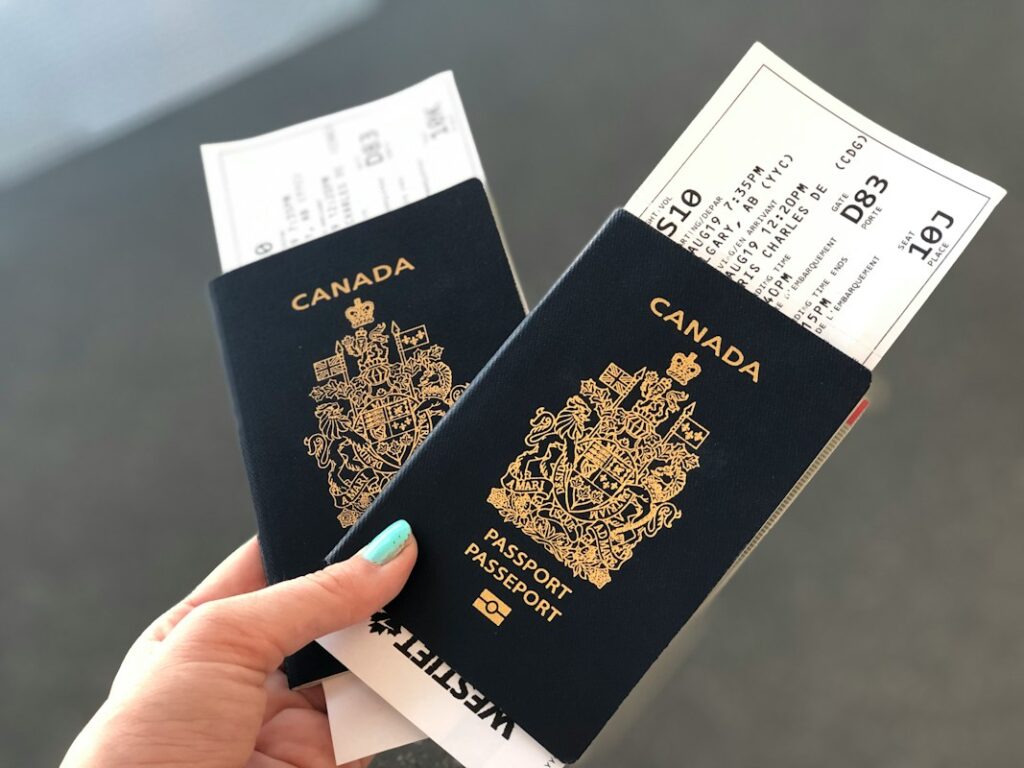Canada Work Permit – The Government of Canada has decided to set an intake cap on international student permit applications for two years. For 2024, the cap is expected to result in approximately 360,000 approved study permits, a decrease of 35% from 2023. Those pursuing master’s and doctoral degrees, and elementary and secondary education are not included in the cap. As far as study permit renewals are concerned, they will not be impacted, and, therefore, current study permit holders need not worry.
International students aiming to study in Canada received positive news to start 2024, as the government announced changes to post-graduation work permit eligibility rules starting this year. Previously, international graduates were required to apply for their post-graduation work permit within 90 days of completing their program of study. This rigid timeline posed challenges for many students.
However, as of January 1st, 2024, international graduates now have 180 days after finishing their program of study to apply for the post-graduation work permit. This change allows six months to secure vital documentation, arrange finances, determine work opportunities, and submit the work permit application.
Background on International Student Work Permits
Background on International Student Work Permit Canada has seen a significant rise in international student enrollment over the past decade. With world-class universities, improved post-study work rights, and a pathway to permanent residency, Canada has become an increasingly competitive study destination.
A key motivator is the post-graduation work permit program that enables international graduates from eligible Canadian institutions to gain valuable Canadian work experience after finishing studies.
Open work permit allow students to work in Canada for the permit’s duration in any position aligned with their skill level and education. Permits awarded based on one-year study programs are valid for the same length as the study program, up to a maximum of three years for Ph.D. graduates.
This temporary post-graduation work period serves as a pathway to permanent residency for many. One year of skilled Canadian work experience gained through the post-graduation work permit can lead to permanent residence eligibility under Express Entry pathways to PR status.
The Option to Apply Later for the Post-Grad Work Permit

International graduates previously faced significant pressure to apply for their post-completion work permit within 90 calendar days of receiving final grades or otherwise losing eligibility.
For students finishing in April and May, this involved applying while simultaneously juggling final assignments and exams. Students needed to quickly collect necessary documents, open a Canadian bank account, get medical exams, prove financial self-sufficiency, and submit the application — all while completing their program.
This short timeline proved difficult or impossible for many graduating students. Exceptions could be made if a student applied late and demonstrated a legitimate reason for the delay. However, the new rules take effect to preclude this need entirely.
Effective January 2024, all students who wish to benefit from the Post-Graduation Work Permit Program now have six months to submit their application after finishing all requirements of their academic program.
Specific eligibility criteria remain unchanged, mainly:
- Enrolled full-time in a program lasting at least 8 months at a designated learning institution
- Program must lead to a degree, diploma, or certificate
- Maintained legal study status throughout the program
Only the application deadline has been extended from 90 days to 180 days after students complete their studies.
Implications of the New Rules
This extension allows six full months for international graduates to apply for their Canadian work permit once finishing up studies.
The extra time is significant in many ways:
No More Final Exam Conflicts Students will no longer encounter conflicts between permit applications and end-of-semester exams, assignments, or events. They can focus more wholly on successfully completing the academic program before the six-month application countdown begins.
Time to Find Employment With a lengthened permit processing target of 50 days, students have time to search for suitable skilled employment in Canada once finishing classes. Applicants can undergo interviews, networking, job boards, and the hiring process before needing to file the work permit application.
Financial & Logistical Preparations
Applying for the work permit involves paying fees, getting medical clearance, proving self-sufficiency, finding housing, opening a Canadian bank account, and collecting documents. Extra breathing room allows graduates to get their affairs in order before applying.
Opportunity for Summer Travel Students finishing off in April or May no longer lose eligibility if they take time over their summer break to travel and decompress before returning to Canada to work. The 180-day application timeframe allows everyone an equal chance to submit their file after completing studies.
Added Flexibility & Decreased Stress Navigating the international graduate-to-worker transition poses stressors for students. This policy change removes the rigid 90-day restraint by providing six months to apply before work rights expire. The resulting flexibility can prevent vulnerable students from falling through the cracks during this critical career phase shift.
Continued Supports for Student Progress
This regulatory amendment aims to empower more international graduates to remain in Canada by securing post-completion work rights. Retaining diverse skilled talent aligns with Canada’s economic goals. While permitting flexibility, it incentivizes students’ swift transition from academics into the domestic skilled workforce.
International Graduate Outlook for 2024

Canada’s strong, welcoming reputation remains despite global pandemic recovery and lingering travel barriers that temporarily slowed international study growth.
Complete international study permit issuances are rising steadily again after a 2020 lull. More competitive post-graduation work and permanent residency options continue attracting globally mobile students to credentials linked to in-demand jobs.
And 2022 saw a 53% year-over-year surge in new study permits for graduate students specifically, signalling a strong rebound to pre-pandemic levels. Employers also report intention to hire 14% more international university graduates in 2023; world events and policy shifts drive ongoing waves of talent toward Canada.
2024 promises growing inbound cohorts armed with Canadian credentials and global experience. Indeed, today’s economic immigration targets rely heavily on transitioning former students into the labour force and economic fabric long-term.
As international education further digitizes through virtual exchange and micro-credentialing, Canada is investing to shepherd more nimble, diverse learner streams from study into the workforce. Forward-thinking student-to-worker policies strengthen Canada’s brand as a preferred study destination and talent pipeline amidst strong global competition.
The student journey matters here; that’s what sets Canada apart. From academic programs to post-study pathways, Canada works to help international graduates meaningfully channel their potential. This slippage in permit application deadlines reflects one more measure to empower skilled job-ready workers our economy seeks to welcome.








